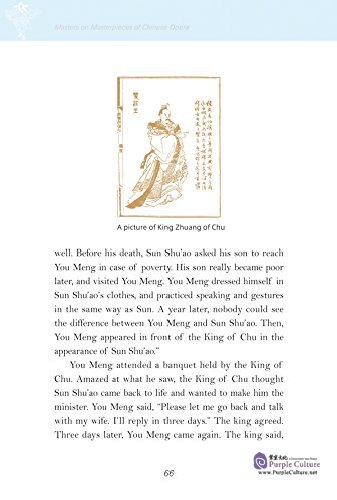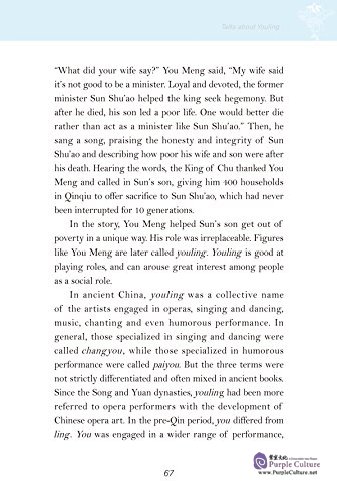The Battle between Kunqu Opera VS. Local Opera and Conception beyond Image
Zhang Fuzhi
The battle between Kunquo pera and local operas
During the reign of Emperor Qianlong, the emperor would pass Yangzhou on each southern inspection tour. Some of the local tycoons invested a lot of training theatrical troupes to please the emperor, so there were dozens of stages set up on both sides of the Grand Canal as Emperor Qianlong’s dragon boat went by. Both designed troupes for Kunqu Opera and local operas could been found on the stages. Since its elegant lyric and melody, Kunqu was called “Yabu (Ya means elegance in Chinese)” and also regarded as orthodox; while the variegated and miscellaneous local operas were collectively called “Huabu (Hua has the meaning of ‘miscellaneous’ in Chinese)”. There was a local opera in Yangzhou named “Luantan” (literal meaning is ‘random’ in Chinese, now it refers to general term for Chinese opera melodies) which regarded as the antonomasia of “Huabu”, so the saying “Huabu Luantan” emerged. Using “Luantan” referring to “Hua” had already been an implied derogatory saying, however, the battle between Kunqu opera and local operas was much more acrimonious. Not only in Yangzhou, in many major cities especially in Beijing, this battle was always very fierce, which constitutes the famous “battle between Kunqu opera and local operas” in the history of opera.
Jingqiang was the first to contest with Kunqu opera in the capital. Jingqiang was a new type of opera after Yiyangqiang introduced to Beijing which singing in the northern dialect. Because of its high-pitched and resounding singing tune, Jingqiang was also known as “Gaoqiang (means high-pitched tune in Chinese)”. After Emperor Qianlong, Jingqiang show once formed the prosperous situation of “the famous six troupes performing back and forth among nine stages”, forcing Kunqu have to hide itself. However, after entering the palace and co-staring with Kunqu, Jingqiang was more and more normative and gradually lost its features of rough and simple while in the folk, thus its vitality was getting weaker by the day.
Next, Shaanxi Opera took the field. In the 44th year of reign of Emperor Qianlong (1779), a famous dan (the female character type in opera) actor of Shaanxi Opera named Wei Changsheng performed in Beijing with the work of “Gunlou” which created a great sensation in the capital, then Shaanxi Opera flourished. It gave a huge threat to Kunqu who dwarfed other operas as “orthodox”. There scared the bigwig who boasted themselves with “elegance” and the Qing government even banned Shaanxi Opera’s performance in Beijing in the name of “correcting custom and avoiding obscenity” and forced Wei Changsheng to leave Beijing as well.
However, the high-handed policy did not suppress the rise of local operas who had tenacious vitality. Finally in the 55th year of reign of Emperor Qianlong (1790) when it was Emperor Qianlong’s 80th birthday, Sanqing Anhui opera troupe came to Beijing to celebrate the birthday with their performances, which made Huabu take root in Beijing. Although in the third and fourth years of Emperor Jiaqing’s reign (1798 and 1799), they banned Huabu opera outside of Kunqu and Yiyangqiang twice, the flourish momentum of Huabu was irreversible. During the reign of Emperor Daoguang and Emperor Xianfeng (1821-1861), Anhui opera troupes absorbed a large number of artists in the field of Handiao Opera and Shaanxi Opera, thus greatly enriched the repertoire and performance methods and its performance was more loved by a broad audience. With the confluence of Anhui opera, Handiao opera and Shaanxi Opera, the new generation of opera — Peking Opera was born.


